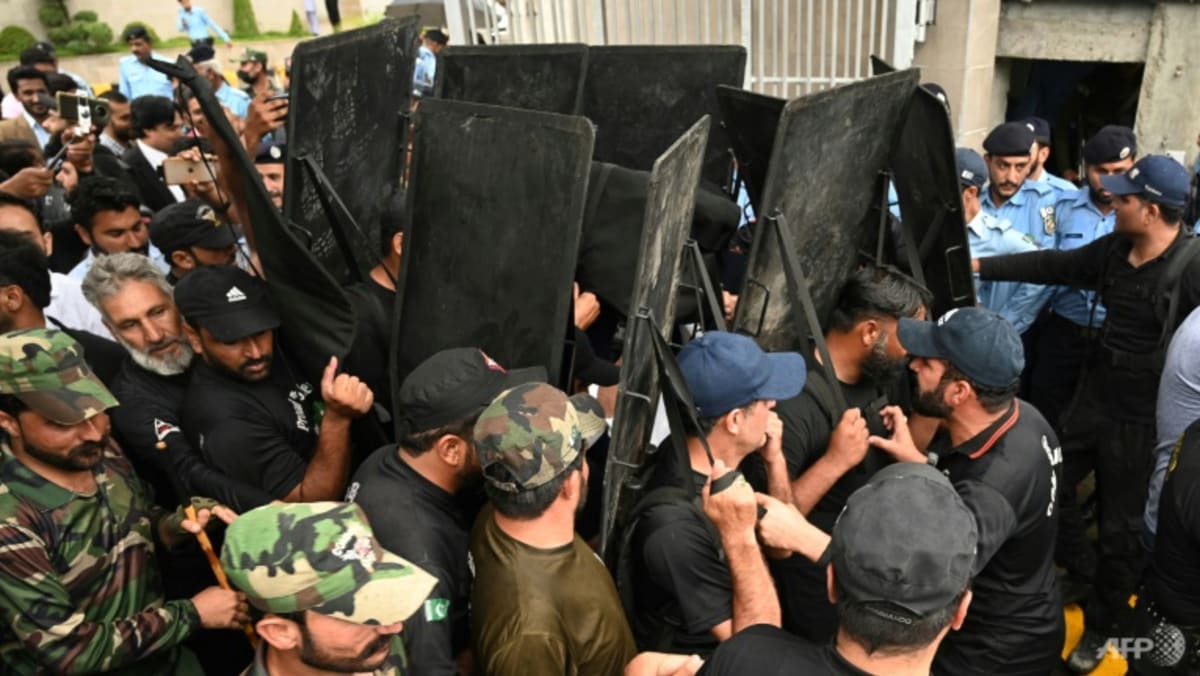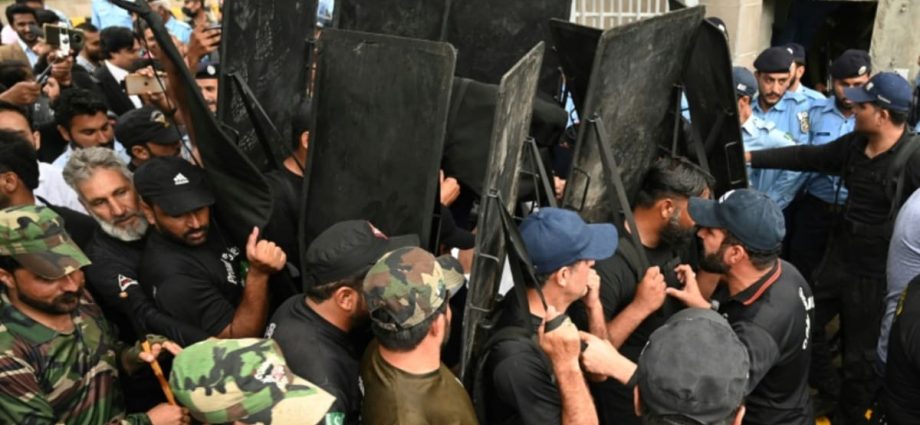
Since he was ousted from office in a no-confidence vote last spring, Khan has waged an unprecedented campaign of defiance against Pakistan’s powerful military establishment, which analysts say was behind his rise and fall from power.
His arrest was widely seen as payback ordered by top brass after he repeated incendiary allegations that they plotted an assassination attempt against him.
The HRCP said that “civilian supremacy has emerged as the greatest casualty” from the deepening political crisis, which comes as Pakistan suffers from a flatlining economy and a worsening security situation.
“The government’s inability – or unwillingness – to safeguard civilian supremacy” and PTI’s “incessant humiliation of law … has led to making military interference in politics inevitable”, Jilani said.
Meanwhile on Wednesday, Human Rights Watch criticised Islamabad for agreeing to try 33 civilians in military courts for allegedly attacking army installations during the unrest.
“Pakistan’s military courts, which use secret procedures that deny due process rights, should not be used to prosecute civilians,” said associate Asia director Patricia Gossman.
As the clampdown on PTI continues, several senior figures have defected, leaving former cricket star Khan increasingly isolated.
He says that arrests are being used to force resignations. Nonetheless he remains far and away Pakistan’s most popular politician.

